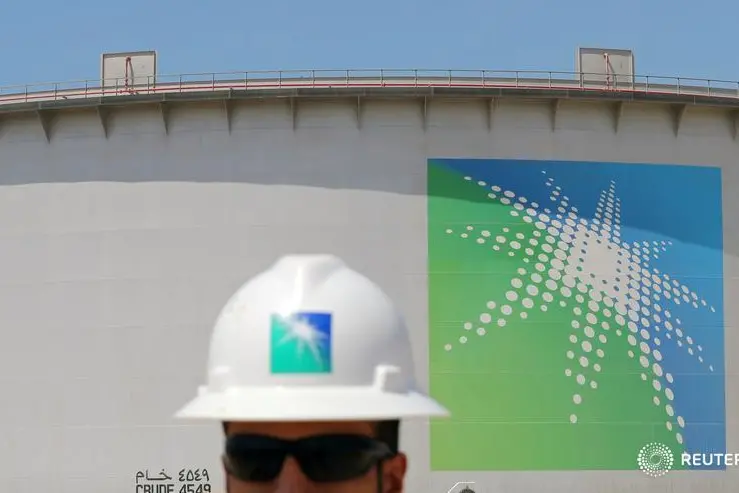PHOTO
An early success of the Vision 2030 initiative has been the first steps in weening Saudi Arabia off its excessive consumption of fuel and its overreliance on subsidized energy. I wrote on the first sign of achievement in August 2018, based on a report by Al Rajhi Capital. Now, the new Saudi Aramco bond prospectus provides further indications of the early accomplishment of the change in fuel subsidies, and a lesson on why the change is so important.
We learned that until 2017, the Saudi government had not been subsidizing the fuel for electricity and transportation. Rather, it was Aramco that had been providing oil, gas and product for far below market value. Until 2017, Aramco did this with no reimbursement, at a loss of several billion dollars per year (its accounts are held in dollars because that is the currency used in the international oil trade).
Beginning in 2017, the government instituted what it calls an equalization system, by which it reimburses Aramco for its losses for sales into the domestic market. Aramco has been selling into the Saudi market at a regulated price, determined by the government. Since 2017, the government has then been paying the company the difference between an equalization price — based on the general market price — and that regulated price. As a result, Aramco is made whole. Now, the government subsidizes electricity and fuel in the Kingdom, not Aramco.
At the same time, the Kingdom has been promoting decreased consumption of valuable hydrocarbons. This is intended to save money and promote environmentally friendly practices. The cuts to energy subsidies are not expected to be fully implemented until 2025, but the initial stages and the anticipation have clearly had an impact.
The prospectus states that between 2017 and 2018, there was a “decrease in volumes of refined products sold in the Kingdom by 9 percent.” This most likely primarily refers to gasoline, but also diesel and jet fuel. This is a huge success for the Vision 2030 energy reforms.
These reforms are absolutely necessary from a fiscal perspective. In 2018, the government compensated Aramco with $40.7 billion of equalization. That is more than 10 percent of the company’s entire revenue, more than the sum of the debt the government is reportedly expecting to raise in 2019, and more than 5 percent of Saudi Arabia’s entire 2018 gross domestic product as estimated by the International Monetary Fund.
Ultimately, the government does recover some of the money it pays to Aramco for equalization. The equalization payment is recorded as revenue for the company (it is marked on the books as “other income related to sales” within total revenue). As such, it is taxed by the government, which can also make up some of its loss by taking a larger dividend from Aramco. Nevertheless, the fuel and electricity subsidy system is a major expense and burden on the government.
In fact, even though consumers in Saudi Arabia used much less refined product in 2018 than the year before, Aramco actually paid just a little more in equalization in 2018 because the price of hydrocarbons and products rose over time. This is further reason that the regulated price must rise. The Saudi market must pay more and the reforms must succeed, or the burden on the government will grow.
Thus, the government intends to continue decreasing subsidies. In the words of the prospectus: “The Government has publicly announced its intention to gradually modify the regulated prices at which refined products are sold in the Kingdom.”
Further, the prospectus explains that over time the regulated price will rise, and the government will pay less to Aramco. Instead, the amount paid by consumers will, over time, approach global market prices.
There is no better way to improve the efficiency of fuel consumption and electricity use than to adopt a market system, whereby consumers pay the actual value of what they buy. This will save billions of dollars for the government, protect air quality in the Kingdom, and add to the revenue realized by Aramco.
Greater revenue for the company helps the Kingdom because Aramco employs more than 70,000 people and funds more than 60 percent of the government. The prospectus provides further evidence of the importance of continuing the energy reform success.
Ellen R. Wald, Ph.D. is a historian and author of “Saudi, Inc.” She is the president of Transversal Consulting and also teaches Middle East history and policy at Jacksonville University. Twitter: @EnergzdEconomy
Arab News: Copyright: Arab News © 2017 All rights reserved. Provided by SyndiGate Media Inc. (Syndigate.info).
Disclaimer: The content of this article is syndicated or provided to this website from an external third party provider. We are not responsible for, and do not control, such external websites, entities, applications or media publishers. The body of the text is provided on an “as is” and “as available” basis and has not been edited in any way. Neither we nor our affiliates guarantee the accuracy of or endorse the views or opinions expressed in this article. Read our full disclaimer policy here.





















